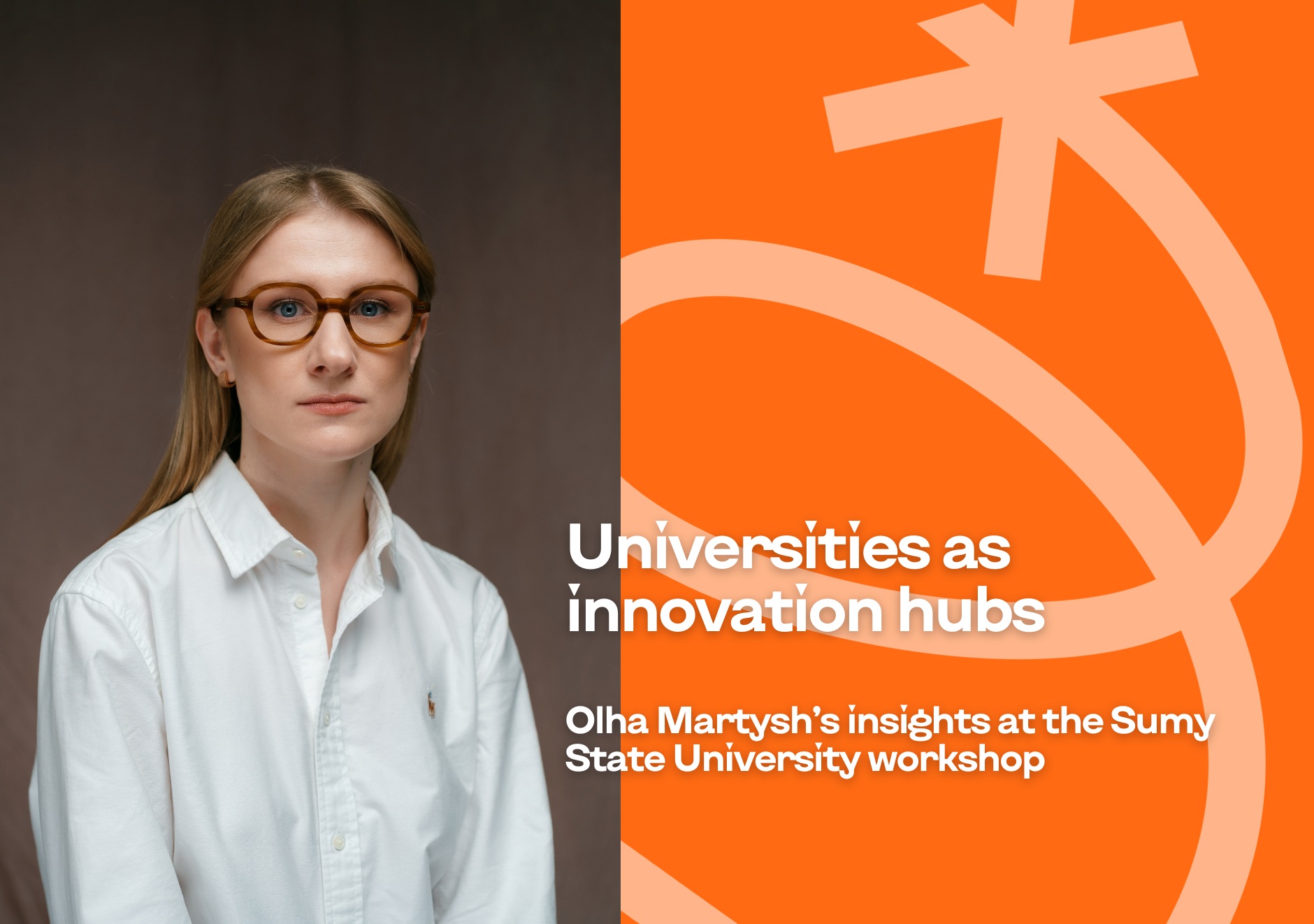Olha Martysh, an IP lawyer and CEO of the IPSTYLE patent law firm, took part in the workshop "Commercialization of Research and Innovation through IP Protection."
The event was held within the project "The Protection of Intellectual Property Rights of Researchers and Research Institutions: Best EU Practices", supported by the European Commission and the ERASMUS program at Sumy State University (SumDU).
"This is a great opportunity to learn how to effectively use intellectual property tools to protect research outcomes and explore pathways to commercialization," noted representatives of SumDU.
Olha Martysh emphasized that Ukraine is launching a new legal framework — Science City, aimed at transforming science parks into innovation hubs. This initiative is part of the 2030 Strategy for Digital Innovation Development, in which IPSTYLE also contributed to the intellectual property component.
She also highlighted international models of managing intellectual capital, where university research is transformed into startups, attracts investment, and results in commercially successful solutions — all of which contribute to the development of innovation ecosystems and boost the prestige of educational institutions.

Among successful examples of spin-off and spin-out companies that bridge science, education, and business, Olha Martysh cited Biomodal, a biotech company that spun out of the University of Cambridge and develops epigenetics analysis solutions. Another case is the AI company Mind Foundry, which originated at Oxford University and launched the commercial research and development lab Aioi R&D Lab – Oxford.
She also pointed to Protostudios, a University of Iowa not-for-profit workshop that assists entrepreneurs, inventors, companies and University faculty in creating demonstrable proof-of-concept devices with an emphasis on anatomical analogs, biomechanical devices, surgical tools using advanced 3D design and manufacturing tools. All intellectual property remains with the assisted parties.
Similarly, Pioneer Prototyping Services operates at the University of Wisconsin–Platteville, offering a wide range of prototyping services to local businesses.
Another key area is technology licensing. One of the most striking examples is Google and Stanford University. Google’s founders, Larry Page and Sergey Brin, developed the PageRank algorithm during their PhD studies at Stanford. The university received an exclusive license to the patent and granted it to Google in exchange for nearly two million shares.
The IPSTYLE CEO reminded researchers and academic representatives of the importance of timely patenting or registration of commercially valuable solutions as a competitive advantage. She emphasized, "Anything published before protection or commercialization begins can work against us."
She expressed hope that we will soon see pilot cases and successful examples of commercializing university-developed technologies, as well as new collaborations between businesses, universities, and research institutions.
Olha Martysh is a leading IP practitioner who specializes in developing innovation protection strategies and advises on international patenting, building IP processes and portfolios for businesses and startups, attracting investment, and more. Over nearly 10 years in the IP field, she has supported patenting of technical solutions in Ukraine, the U.S., European countries, Canada, Australia, India, China, South Korea, Japan, South Africa, and the UAE.